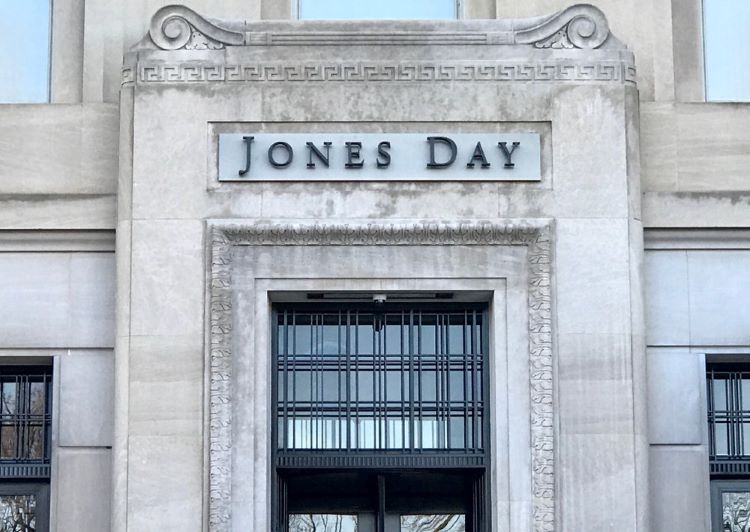This NYC-based lawyer runs a talent agency for internet-famous animals

Photo courtesy of Loni Edwards
It doesn’t take much for a pet to be considered cute. Those button noses. The big ears. The way they look when they’re lapping, nibbling, preening, grooming or just staring up at you. But for a pet to be standout cute on Instagram? That takes quite a bit more effort. In fact, it takes so much effort to capture the attention of the social media platform’s more than 1 billion active users that it can feel like a full-time job. And for New York City-based lawyer Loni Edwards, it actually is her job.
Edwards is the founder and CEO of the Dog Agency, a talent management company that connects animal-focused social media accounts with commercial opportunities. Among her most influential clients: Tika the Iggy, Crusoe the Celebrity Dachshund, Harlow and Sage, and Toby Toad. Edwards is also founder of PetCon, a multicity annual conference that Travel and Leisure magazine called “one of the most magical events in the world for pet owners.” And it all started when she decided to share a few snaps of her miniature French bulldog with friends.
Q. Your career started out pretty conventionally—you graduated from Harvard Law School and got a job as a lawyer. How did you get from private practice to the pet influencer business? Did you always intend to become an entrepreneur?
A. No. My whole life, my goal was always to be a lawyer. When I graduated from law school, I moved to LA and joined a firm focused on IP litigation. I was there for six months, but then I had this entrepreneurial itch. I wanted to do something more creative. I’m from New York, so I moved back and started a fashion tech company.
I was alone all the time working and wanted a little friend to sit with me on the couch, so I got a dog. Chloe was my first real dog—my family had a dog when I was younger, but I was off at boarding school. I didn’t know much about the dog world at the time, and Chloe changed my life completely. Looking at her would just make me so happy. I couldn’t get enough of taking photos and videos of her, and I wanted to share that with my friends and family, so I created an Instagram account for her. That was in 2013.
Dog influencers weren’t really a thing then. I only made a separate Instagram account for her in case people didn’t want to see endless pictures and videos of my dog.
Q. As it turned out, many, many people wanted to see your photos! You eventually started partnering with brands, turning her into a full-fledged pet influencer. What influenced you to scale this success into a talent agency for other pet influencers?
A. At the time Chloe was becoming an influencer, I was still running my fashion tech business. I made tech-enabled handbags that charged phones—I was making them in the garment district—and I was also licensing the utility patent I received for it. But I started meeting other humans in the pet influencer space, and they were saying, “Ah, I got this contract. I don’t know how to read it; can you look at it?”
I realized there was no centralized hub that helped pet influencers and brands put it all together. With my legal background and having a pet influencer myself, I saw the potential to build around that. There was someone who wanted to buy my patent, so I decided to switch gears, and in 2015, I started the agency. In the beginning it was just dogs, but now we have all sorts of celebrity pets, like cats, hedgehogs, a celebrity duck and a toad. We even have some people—people who work with pets. We have veterinarians and even a pilot who in his free time flies pets from high-kill areas to low-kill areas to save them.
Q. How do you determine whether a pet influencer has what it takes to join your talent roster?
A. We take a deep dive on their social media accounts. We look at the comments to see how invested the followers are, and we look for good quality content. At the end of the day, these pets are going to be creating and distributing marketing content for brands, so I want to see consistency and authenticity in their brand, an engaged audience that listens to them and cares what they have to say as well as quality in their content.
They also need to be unique. The space is getting saturated, so they need to have an angle to stand out. Location permitting, we try to meet with them in person. We want to make sure there’s a good bond between them and that the human has enough time to devote to turning this into a successful business. It’s a lot of work, so you have to have the time to do it, and you have to enjoy doing it.
Q. Sounds like this could be a full-time job.
A. We do have clients who do this as their full-time job. We have others who have shifted their job to be more freelance, so they have more time other than just nights and weekends.
Q. Do you help your clients create content?
A. When we decide to bring somebody on, it’s because we think they’re already doing a good job. So we want them to continue doing what they’re doing. That said, we do help them come up with creative concepts for marketing campaigns and also work with them to keep their content creative, interesting and valuable for their audience. We also connect them to publishers and to brands. We advise and nurture them. We help them grow and, of course, we look out for them legally.
Q. What is your biggest challenge with the Dog Agency?
A. Staying on top of an ever-changing landscape. The industry is still relatively new, new platforms are always popping up, and new influencers are going viral. You never know what the next day is going to hold.
Q. Going back to challenges—as a result of the pandemic, you weren’t able to hold PetCon in person last year, but you did hold it virtually in December. Tell me about that.
A. It was extremely disappointing to have to cancel the in-person PetCons; 2020 was going to be our first time in the Midwest with the Chicago PetCon. But the ability to take the event digital actually turned out to be amazing. We had attendees from over 50 countries, and we were able to get big celebrities involved like Kaley Cuoco and Jane Lynch. The event was free, but we were able to raise $25,000 in donations for the Animal Cancer Foundation.
The in-person PetCons center around a large adoption garden featuring rescues from the event city, and we were able to go bigger with the digital PetCon by partnering with rescues from all over the United States. Every hour, a different rescue showed off their adoptable pets, leading to a ton of adoptions. Some of the adopted pets had been at the rescues for a long time and had been overlooked, but they were able to find homes through this, so it was really incredible. We also held interactive sessions on how to create compelling content and how to make treats for your pet.
Q. How did the pandemic affect the Dog Agency?
A. In the beginning, everything came to a screeching halt. A lot of what we do involves branded content, which our influencers create and push out via their social media channels. When COVID hit, brands didn’t want to come off as insensitive, so they put their marketing campaigns on hold. I wouldn’t say it’s back to business as usual, it’s more like business as different. Brands and influencers feel comfortable making branded content again, but it’s made with a sensitivity for this moment in time.
But there was one silver lining: In mid-March [2020], a publisher reached out to me about writing a book, which is something I’d always wanted to do but never previously had the time to do.
Q. That’s amazing! So did you write a book?
A. Yes! It comes out Sept. 21, and it’s called How to Make Your Dog #Famous: A Guide to Social Media and Beyond. It’s about how to create a successful social presence for your pup and how to make sure your dog has its best life. The book has two parts: “The Road to Fame” and profiles of dog influencers from around the world centered around a tip. It’s also full of adorable photos, of course!
Q. You lost Chloe in 2017. Tell me about your decision to continue her Instagram account.
A. A lot of bulldogs get soft palate surgery to make it easier for them to breathe. Chloe had the surgery, it went well, and then she went to a facility for overnight observation as an abundance of caution. However, they didn’t calibrate the oxygen before attaching it to her, and she was killed. Through that experience, I learned that under the law, pets are categorized as property, which results in them lacking fundamental legal protections. I’ve been working with the Animal Legal Defense Fund to raise awareness, push for change and collect donations to support the work they do.
I got a new Frenchie named Emma to help me heal, and I’ve been posting her on Chloe’s page to both share her with the community Chloe and I built and to keep pushing for change in Chloe’s honor.



